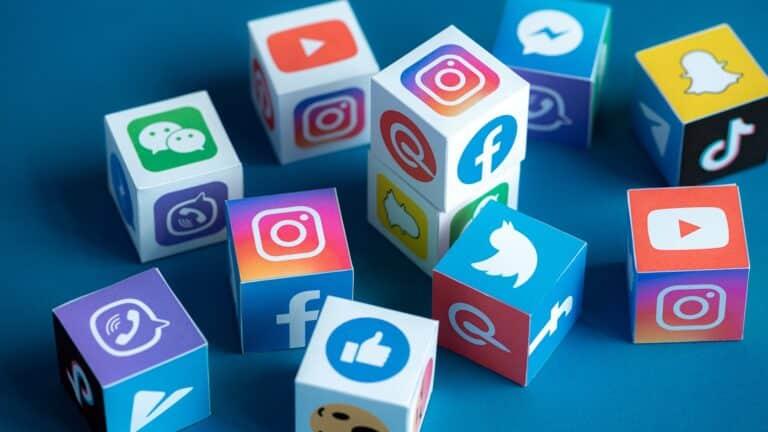As digital media continues its rapid evolution, 2025 is set to mark a pivotal year with social platforms emerging as a dominant force in media and entertainment. According to a new report by Deloitte, the lines between content creation, distribution, and consumption are increasingly blurred as social media giants reshape the landscape, challenging traditional players and redefining audience engagement. This article explores the key trends driving this transformation, highlighting how social platforms are not just channels but powerful ecosystems that are influencing everything from streaming habits to advertising strategies in the year ahead.
Social Platforms Reshaping Content Creation and Consumption
As digital landscapes evolve rapidly, social media platforms are not just channels for interaction but pivotal arenas for content innovation and consumption. Platforms like TikTok, Instagram, and emerging decentralized networks are pioneering new content formats that blur traditional boundaries between creators and audiences. From short-form videos to interactive livestreams and augmented reality experiences, these platforms are fostering an ecosystem where creativity thrives and users have an unprecedented influence on what trends globally.
Moreover, data-driven customization and AI-powered algorithms are sharpening the precision with which content is delivered, ensuring that user preferences shape their media diet more than ever before. This shift significantly impacts marketing strategies and entertainment avenues, creating a symbiotic relationship between content creators and platforms. Below is an overview of key changes driving this transformation:
- Real-time engagement: Platforms emphasize live interaction and immediate feedback loops.
- Monetization innovation: New revenue models like creator coins and exclusive content subscriptions.
- Cross-platform integration: Seamless sharing and repurposing of content across multiple social networks.
- AI curation: Enhanced personalization through machine learning tailored to user behavior.
Emerging Technologies Driving Immersive User Experiences
As social platforms evolve, a new wave of technology is reshaping how users engage with digital content, blurring the lines between reality and virtual experiences. Augmented Reality (AR) and Virtual Reality (VR) are at the forefront, offering immersive environments that transform storytelling and brand interaction. These technologies enable viewers to dive into multi-sensory narratives, making entertainment deeply personal and interactive. Meanwhile, advancements in 5G connectivity are critical, providing the low latency and high-speed networks necessary to support real-time, rich media exchanges without lag, fundamentally altering mobile and social media consumption patterns.
- Spatial computing: Integrates physical and digital worlds through 3D interfaces, enhancing remote collaboration and gaming.
- AI-driven personalization: Powers dynamic content delivery tailored to individual preferences, increasing user retention and engagement.
- Haptic feedback technologies: Introduce tactile sensations, bridging the gap between digital touchpoints and physical feel.
| Technology | Impact | Example Use Case |
|---|---|---|
| Augmented Reality (AR) | Enhances storytelling with interactive overlays | Virtual product try-ons in social shopping |
| 5G Networks | Enables seamless live streaming and gaming | Real-time multiplayer AR games |
| Artificial Intelligence | Delivers bespoke content curation | Personalized video feeds on social apps |
Monetization Strategies for Creators and Brands on Social Media
Creators and brands are increasingly leveraging innovative approaches to turn engagement into revenue streams, capitalizing on social platforms’ expanding reach. Among the most effective strategies are direct monetization tools such as subscription services, live shopping events, and tipping features, which empower audiences to support content in real time. Additionally, brands are harnessing influencer collaborations and native advertising to weave seamless promotional content into social narratives, creating authentic connections that resonate more deeply with consumers.
Emerging technologies are also revolutionizing monetization dynamics. The rise of virtual goods and NFTs enables creators to sell exclusive digital assets, while data-driven content optimization boosts advertising precision for brands. The following table highlights key monetization channels and their primary benefits for creators and brands:
| Monetization Channel | Primary Benefit | Usage Example |
|---|---|---|
| Subscription Models | Steady revenue | Exclusive content access |
| Live Commerce | Instant sales conversion | Shoppable live streams |
| Virtual Goods & NFTs | Ownership & exclusivity | Limited-edition digital art |
| Influencer Partnerships | Enhanced brand trust | Sponsored product reviews |
Regulatory and Privacy Challenges in the Evolving Digital Landscape
As social platforms expand their reach in media and entertainment, navigating the complex regulatory environment becomes paramount. Governments worldwide are imposing stricter data privacy laws and content regulations, challenging companies to balance innovation with compliance. Issues such as cross-border data transfers, user consent, and algorithmic transparency are at the forefront, forcing tech firms to rethink their operational frameworks. Failure to adapt swiftly can lead to hefty fines and damaged reputations, underscoring the necessity for robust governance strategies.
Key regulatory and privacy obstacles shaping the landscape include:
- Enforcement of the General Data Protection Regulation (GDPR) and similar laws in new markets
- Addressing misinformation without infringing on free speech rights
- Implementing age-appropriate privacy protections for younger audiences
- Ensuring transparent ad targeting and data monetization practices
| Challenge | Impact | Response |
|---|---|---|
| Data Privacy Violations | Fines up to 4% of global revenue | Enhanced encryption and consent frameworks |
| Content Moderation Laws | Risk of content removal or blocking | AI-driven filtering systems and human oversight |
| Cross-Border Data Transfer | Operational restrictions in key markets | Localized data centers and partnerships |
The Way Forward
As 2025 approaches, the landscape of media and entertainment is clearly being reshaped by the rise of social platforms, which are fast evolving into dominant channels for content consumption and engagement. Deloitte’s analysis underscores the profound impact these platforms have on how audiences discover, share, and interact with media, signaling a shift that industry players cannot afford to ignore. As technology advances and user behaviors continue to change, staying attuned to these digital media trends will be essential for brands, creators, and consumers alike, navigating an increasingly interconnected and dynamic entertainment ecosystem.




